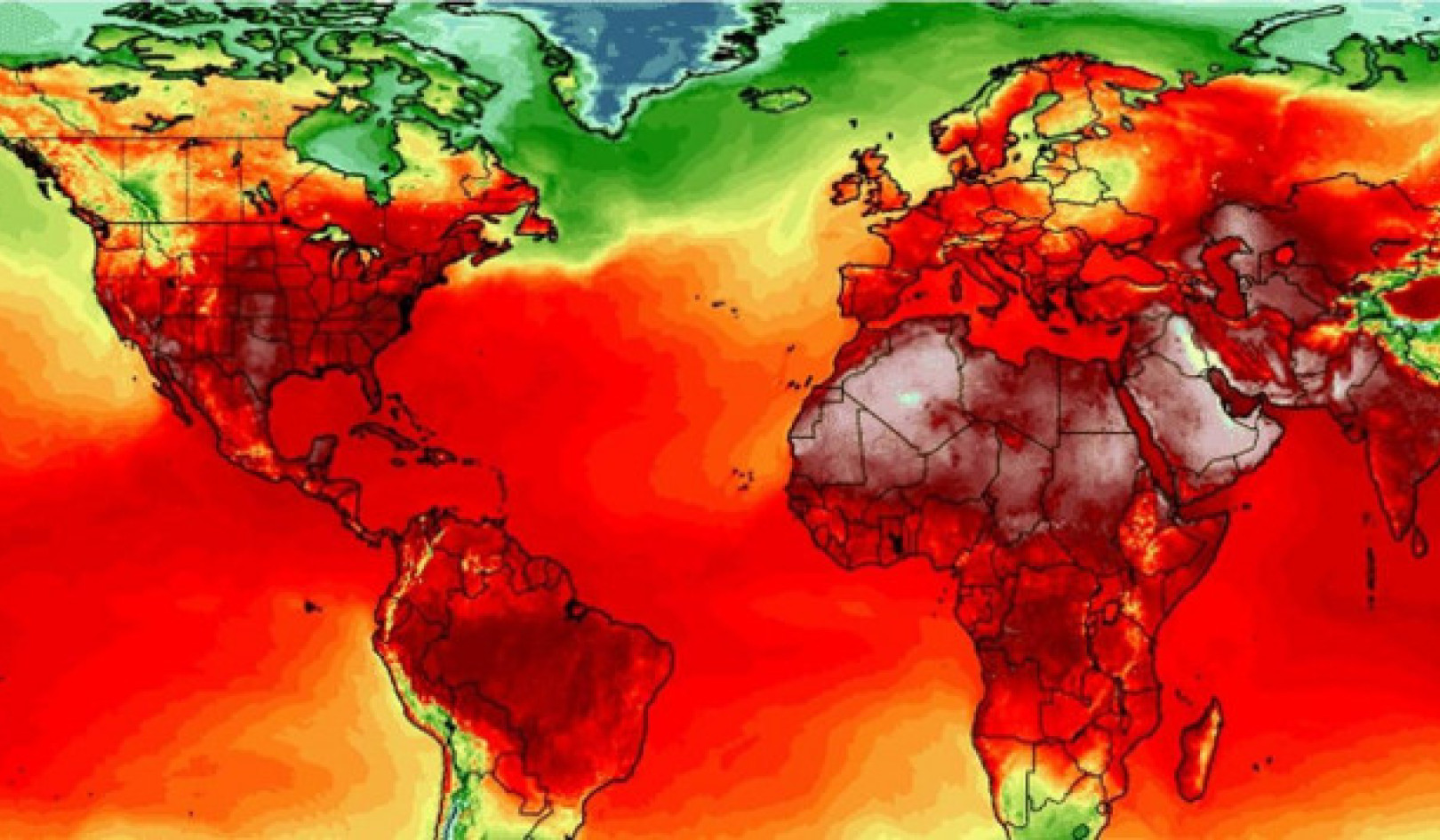The post-NAFTA era has been marked by growing inequality, declining job security and new leverage for corporations to attack government regulations enacted in the public interest.
But it wasn’t supposed to be that way. Back in 1986, when the leaders of the US, Canada and Mexico began talks on a regional trade deal that eight years later would culminate in the signing of the North American Free Trade Agreement (NAFTA), they sold the pact to the public as an economic win-win for all parties involved.
On signing the treaty in 1994, then-President Bill Clinton said, “NAFTA means jobs. American jobs, and good-paying American jobs. If I didn’t believe that, I wouldn’t support this agreement.” He promised that NAFTA would result in “an export boom to Mexico,” and claimed that such trade deals “transcend ideology” because support for them “is so uniform that it unites people in both parties.”
Twenty years later, we can test how those claims panned out in the real world. And Public Citizen’s Global Trade Watch did just that, releasing a comprehensive study of NAFTA’s impacts.
Last week, Global Trade Watch Director Lori Wallach spoke to Moyers & Company about NAFTA at age 20, and what it portends for other trade treaties like the Trans-Pacific Partnership. Below is a transcript of the conversation, edited for clarity.
Joshua Holland: Last Wednesday was the twentieth anniversary of NAFTA going into effect. Has it at least led to an increase in the trade of goods and services between the US, Canada and Mexico?
Lori Wallach: That is the only measure where you can show that the promises of NAFTA’s proponents were met. The flow of goods has increased. Unfortunately, that flow has been a huge surge of imports into the United States, from Mexico, and, interestingly, from Canada, so that we’ve seen the displacement of one million jobs on net because of the huge increase — a 450 percent increase — in our trade deficit in the 20 years since NAFTA went into effect.
Holland: They said that it would be a net job winner. At the time, the conventional wisdom was that there would be some job displacement but the vast majority of us would be winners in this.
What about Canada and Mexico? I know Mexico’s agricultural labor market was devastated by NAFTA, as subsidized corn and other products flooded into the country, and it certainly spurred a huge wave of immigration from the south, as all those agricultural workers lost their jobs. But in terms of employment in other sectors, did it end up a net winner or loser for them?
Wallach: Mexico is probably the saddest story ofNAFTA’s effect because, 20 years into the agreement, the level of employment in manufacturing there is actually down relative to its pre-NAFTA economy.
Part of that is the result of NAFTA having wiped out a lot of the small and medium size production: food processing and small textile and apparel plants, and other plants that were supplying the independent mom and pop stores which were devastated by the invasion of the Wal-Marts and other big US chains. There’s a whole movement called El Barzón of folks who had been the owners of those factories or of those small retail stores, who had been for NAFTA in the beginning but are now very strong NAFTA opponents.
Also, if you look at Mexico, the level of poverty has stayed the same, but income inequality has increased, and industrial wages are actually down in real terms.
One statistic that really shows the failure of the free trade model is that the price paid to Mexico’s farmers for their corn dropped 80 percent within the first three years of NAFTA, as a huge flood of subsidized US corn started flowing in. But the price Mexicans pay for tortillas—a staple food—has increased almost 300 percent. Under free trade theory, some folks lose — those corn farmers lose — but everyone is supposed to get richer because prices go down. That is the theory of free trade — the consumer benefits, and the producer who loses should be compensated — and the tortilla shows how that promise has been proven false.
There are many reasons for this. NAFTA wasn’t just about trade. It set up all these rules that, for instance, allowed Archer Daniels to buy up not only the processing plants for corn, but also to buy a stake in one of the biggest tortilla makers, Bimbo, which is sort of the Wonder Bread of Mexico. And as a result, you have Archer Daniels and other companies selling to themselves, and marking up the profit margin each time. So with this “competition” that free trade is supposed to create, with all these corporate rights to acquire and basically monopolize sectors, the consumer is the loser.
Holland: Let’s return to the United States. We were told before NAFTA — and we hear this with every single trade deal — that this is all about opening overseas markets for our exports. But we’ve seen the opposite of that in the NAFTA context – as you mentioned, our trade deficit has exploded.
Is it because our trading partners don’t like our products, or is this evidence that US multinationals move their production overseas to save on labor costs and regulations but then just re-import the products for sale right here at home?
Wallach: That is what’s happening. Shortly after NAFTA, we did a very detailed dig to find all the promises of US producers who made very specific claims before the treaty was signed that ‘if NAFTA passes, we will add X number of jobs.’ So we went and looked at the federal government’s Trade Adjustment Assistance database and we found that company after company — big US manufacturers like Chrysler, GE, Caterpillar — that promised to create specific numbers of US jobs instead were offshoring thousands and thousands of US jobs to Mexico, and then they were bringing the product back into the country and selling it. It was still their US brand name, but made with much lower wages in Mexico.
The trade data are very telling. The year before NAFTA, the United States had a small trade deficit with Canada — about $20 billion dollars — and a slight surplus of $2 billion dollars with Mexico. Now, 20 years later, we have almost a $200 billion dollar trade deficit with those countries. So the surplus with Mexico turned into a huge, huge deficit, as all those companies relocated there to produce goods with lower wages.
And this Trade Adjustment Assistance database is really fascinating. There are 845,000 specific US workers who are certified under just this one narrow program as having lost their jobs since NAFTA to trade with Mexico and Canada. And you’d be surprised at the kinds of companies you see. In the beginning it was a huge wipeout of the auto sector, textiles and apparel, and appliances. But now it’s computers, it’s clean manufacturing of computer chips, high-end electronics, aircraft – these are high-end, high-tech, well-trained, well-paid jobs. The so-called jobs of the future are all being offshored.
Even if you didn’t lose a job, what we’ve found with this study, and, more importantly, what economists, including those who supported NAFTA originally, found is that shifting a million well-paying jobs out has an effect economy-wide on wage levels and on income inequality.
The statistic that is most important is what happens when those folks whose jobs were lost are reemployed. According to the Department of Labor, they lost more than 20 percent of their previous wages. So when we say that wages in real terms are flat—we’re at 1979 levels of median income, but we’re obviously not at 1979 prices — it is in large part the result of the downward pressure of this kind of trade on all of our wages.
What was really different with NAFTA is that it had a whole chapter that included investor protections — special rights and privileges for companies that relocate production.
Before NAFTA they wouldn’t go. They were afraid that they might get expropriated. They were afraid that they might end up with some new policy that they’d have to adjust to. And they were afraid of having to rely on the Mexican courts. But under NAFTA’s investor rules, the famous Chapter 11, there is “a minimum standard of guaranteed treatment” for any investor who moves to another country. It guaranteed compensation for regulatory changes and costs, and it created a system of tribunals, with corporate lawyers as the so-called judges. So they can easily dodge domestic courts.
It was an incentive to relocate that production, make it for those low wages, then slap on the US brand and sell it back here. That’s the NAFTA trade deficit.
Holland: Those investor-state tribunals are what many critics say is the most anti-democratic aspect of these trade deals. Can you tell us a little bit about their record in these first two decades of NAFTA?
Wallach: Over the 20 years of NAFTA, $400 million dollars have been paid out in these investor-state lawsuits. In these cases, corporations have directly sued governments, dragging them in front of extrajudicial tribunals presided over by corporate lawyers who are empowered to order any amount of damages. There is no outside appeal
There’s a whole string of cases around water rights, around timber rights. And in the most recent one, ExxonMobil is going to end up with tens of millions of dollars in a case against Canada because Canada required that for any company—US, Mexican, Canadian, a firm from Mars—any company that got an offshore oil or gas exploration permit was required to pay a fee for research on renewable energy in the future as part of the licensing process. It seems reasonable, but [under NAFTA's Chapter 11] it’s considered a forbidden performance requirement on a foreign investor, and ExxonMobil is going to get tens of millions of dollars from the Canadian government even though Canadian companies who are doing the exact same work have to pay this fee.
And then there is the chilling effect, because on average it costs $8–10 million dollars to fight a Chapter 11 suit, and even if the country wins, it has to pay those costs. It’s just a second bite at the apple for corporations — a chance of getting out of regulations and trying to bully governments –because in a country like Canada or the US, where the courts work fine, there is no other reason to have these extrajudicial tribunals.
And if all of this sounds bad, the Trans-Pacific Partnership — the TPP, which is under negotiation right now — is an attempt to expand NAFTA, and all of this damage — from the investor state system to the job offshoring — to 11 more countries. It is NAFTA on steroids.
The good news is that 20 years of NAFTA’s damage has made Congress very suspicious, and other countries have become very suspicious of these kinds of agreements.
The bad news is that the Obama Administration is hell bent on signing it, this year, in the first couple of months of this year, and is asking for fast track trade authority — the outrageous procedure that is the only reason that NAFTA got greased through Congress. It’s a procedure that takes away all of Congress’s normal operations and basically zooms a bad trade agreement through Congress with very little oversight and makes it almost impossible for the public to hold their members of Congress accountable.
Holland: Lori, what questions should people ask about the TPP that weren’t asked about NAFTA?
Wallach: Number one question to your member of Congress should be, have you read the actual full text of the agreement? Do you know about the investment rules that promote job offshoring? Do you know about the rules that require us to import food that doesn’t meet our safety standards? Do you know about the ban on buy American and buy local? If you don’t know, if you haven’t read those chapters—the investment chapter, the food chapter, the procurement chapter—then you cannot vote yes to approve this.
Question number two: do you know this becomes binding US law limiting what Congress, states and local city councils can do as far as making domestic policy on all of these nontrade issues, and that not a word of this agreement can be changed unless all 12 countries agree? Do you understand that you are limiting the future of our democracy, indefinitely, on everything from internet freedom and our energy and climate policy to the prospect of having green jobs and an equitable economy? Do you understand that’s what you’re doing, i.e. throwing away your job as a Congressperson?
And then the third question is: what single piece of evidence do you have that this trade agreement is actually going to create jobs here versus lose more US jobs and push down our wages? We now have free trade agreements with 17 countries. Show me a single one of those agreements in which we have gained jobs on net. Show me evidence from a single one of those agreements that the partner countries have reduced their poverty. Show me any of the past promises that are being repeated now by the same interests — the same corporate think tanks, the same companies — to push TPP which has come true.
After this post was published, a bipartisan group of lawmakers introduced legislation that would grant the White House “fast-track” trade authority. Details can be found here.
You can read Public Citizens report, “NAFTA at 20,” here.
This article, Trade Expert: Why TPP — “NAFTA on Steroids” — Must Be Stopped, is syndicated from Moyers & Company and is posted here with permission. This article was originally shared via the Repost Service. .
























